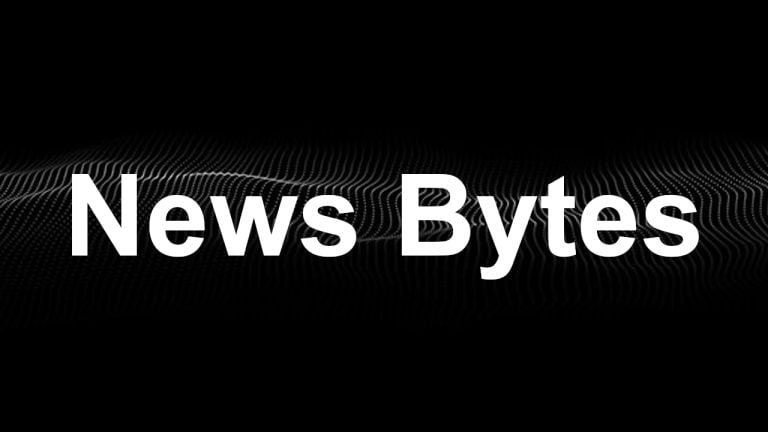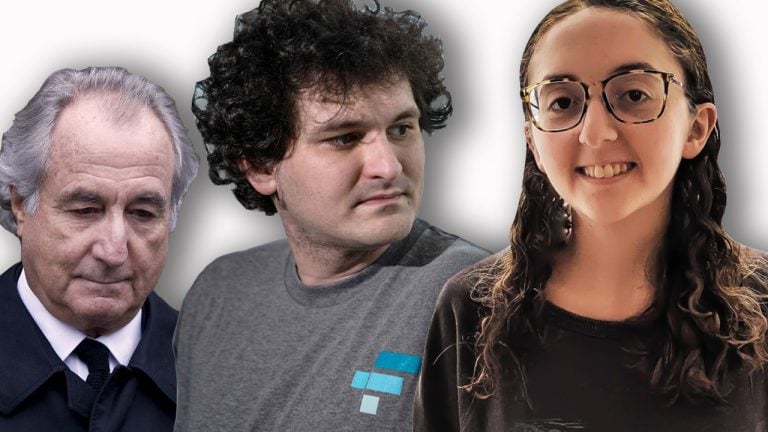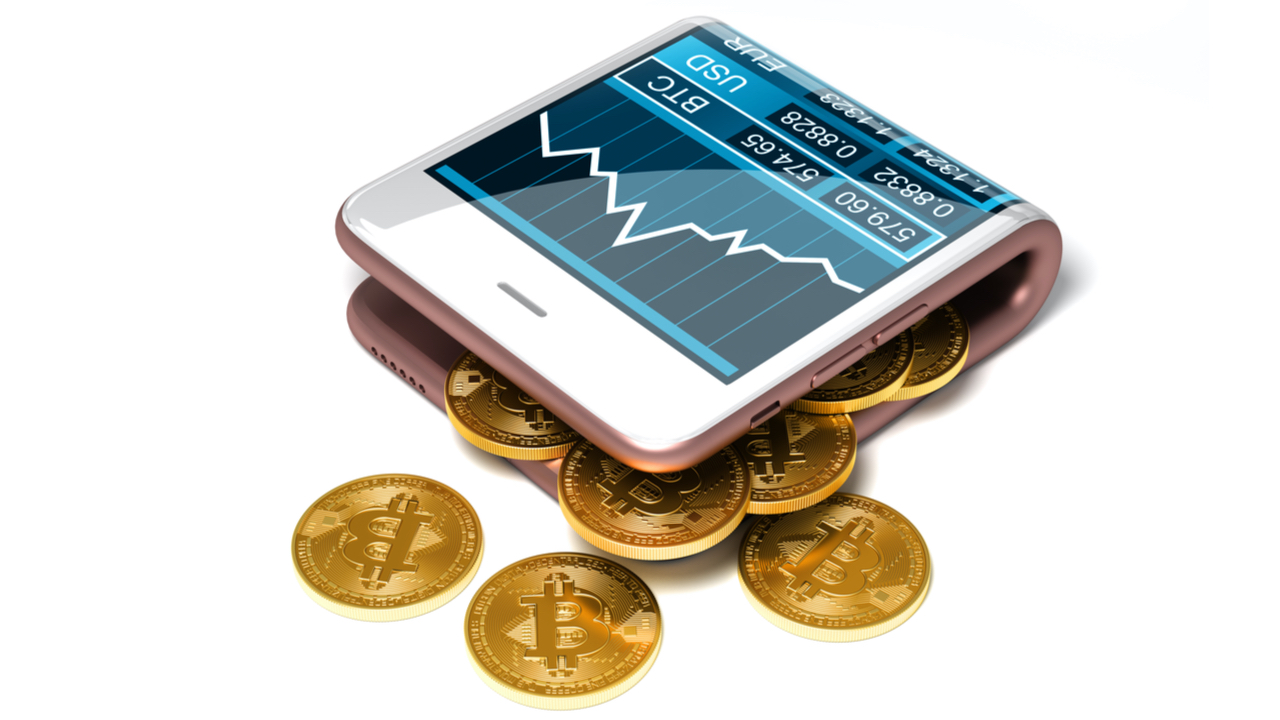 Mark Karpeles, the former CEO of the infamous Mt. Gox exchange, is set to launch a new cryptocurrency exchange named Ellipx later this month. Based in Poland, Ellipx aims to prioritize transparency and compliance with the European Union’s Markets in Crypto-Assets (MiCA) regulation. The platform will initially operate as a crypto-only exchange, with plans to […]
Mark Karpeles, the former CEO of the infamous Mt. Gox exchange, is set to launch a new cryptocurrency exchange named Ellipx later this month. Based in Poland, Ellipx aims to prioritize transparency and compliance with the European Union’s Markets in Crypto-Assets (MiCA) regulation. The platform will initially operate as a crypto-only exchange, with plans to […] In a social media post, Mark Karpelès, the former CEO of the now-defunct cryptocurrency exchange Mt. Gox, provided a status update on the recent situation. He assured followers that “everything is fine with MtGox” and revealed that the trustee is currently moving coins to a different wallet in preparation for a distribution that is expected […]
In a social media post, Mark Karpelès, the former CEO of the now-defunct cryptocurrency exchange Mt. Gox, provided a status update on the recent situation. He assured followers that “everything is fine with MtGox” and revealed that the trustee is currently moving coins to a different wallet in preparation for a distribution that is expected […]
Mark Karpelès was seemingly drawing parallels to Sam Bankman-Fried's recent antics, claiming to have gotten through 20,000 pages of evidence in pre-trial detention with only a "simple calculator."
Mark Karpelès, the former CEO of the collapsed exchange Mt. Gox, seems to have little in the way of sympathy for former FTX CEO Sam Bankman-Fried, who’s been trying to get released from prison to prepare for his upcoming trial, citing poor internet.
“When I was arrested back in 2015, the most computing power I got was a simple calculator (+-*/√),” Karpelès wrote in a Sept. 13 post on X (formerly known as Twitter).
Karpeles was arrested on two separate occasions in 2015 for the alleged misappropriation of nearly $3 million of Mt. Gox customer funds.
When I was arrested back in 2015, the most computing power I got was a simple calculator (+-*/√). Had 20000 pages of evidence including over 5000 pages of accounting. Calculation I did at the time helped me to earn release under bail and eventually be cleared of all embezzlement…
— Mark Karpelès (@MagicalTux) September 13, 2023
Karpelès eventually earned release under bail using a trusty “little calculator” he bought from the prison commissary and was eventually cleared of all embezzlement and breach of trust charges.
“I spent a total of 11 months and 15 days in pre-trial detention, and didn't have access to any of the evidence until about 7 to 8 months in,” he said.
By using supplies he’d gotten from the jail's store, Karpelès used folders and stickers to create an index of all the evidence he’d been sent by his legal counsel, which was all squeezed into a very complex eight-page file, he said.
Karpelès said he was even initially going to brave it with an abacus — an ancient counting tool that uses sliding beads to add and subtract — which was the only item listed that could assist with calculations. Luckily, a prison guard told him that he could use a calculator for accounting cases and thus spared him the headache.
— Mark Karpelès (@MagicalTux) September 14, 2023
“I spent around $120 to buy the best calculator they had, which could do additions, subtractions, multiplications and divisions, square roots for some reason, and had buttons to add/remove consumption tax,” he explained.
Related: The Mess That Was Mt. Gox: Four Years On
Finally, four years after his initial arrest in August 2015, Karpelès was said he was cleared of all embezzlement and breach of trust charges, “all thanks to that little calculator” and “of course the tremendous work” done by his lawyers.
Karpelès’ comments come days after lawyers for Bankman-Fried filed a request to have him released from prison, claiming that his poor internet access was a significant impediment to the preparation for the upcoming trial.
District Court judge Lewis Kaplan denied the request for temporary release on Sept. 12, declaring that poor internet access wasn't sufficient grounds for release.
Bankman-Fried currently faces 12 criminal charges, which will be spread across two trials scheduled to begin on Oct. 2, 2023, and March 11, 2024. He has pleaded not guilty to all counts.
Big Questions: What’s with all the crypto deaths?
 Following the collapse of FTX at the beginning of November, two top executives from FTX and Alameda Research — Sam Bankman-Fried and Caroline Ellison — have been listed among traders with the top trading losses worldwide on Wikipedia. According to the Wiki page, Bankman-Fried’s and Ellison’s so-called ‘trading loss’ of 51 billion nominal U.S. dollars […]
Following the collapse of FTX at the beginning of November, two top executives from FTX and Alameda Research — Sam Bankman-Fried and Caroline Ellison — have been listed among traders with the top trading losses worldwide on Wikipedia. According to the Wiki page, Bankman-Fried’s and Ellison’s so-called ‘trading loss’ of 51 billion nominal U.S. dollars […] For the last 11 years, a mysterious wallet associated with the Mt Gox scandal has sat dormant holding close to 80,000 bitcoin worth $3.7 billion today. While the wallet was once the sixth-largest address a few years ago, today it’s the ninth-largest wallet in terms of bitcoin held, and the funds have never been spent […]
For the last 11 years, a mysterious wallet associated with the Mt Gox scandal has sat dormant holding close to 80,000 bitcoin worth $3.7 billion today. While the wallet was once the sixth-largest address a few years ago, today it’s the ninth-largest wallet in terms of bitcoin held, and the funds have never been spent […]
Former CEO Mark Karpeles disclosed that the exchange had roughly 200,000 BTC in possession during the company’s closure, out of which the trustee sold 50,000 BTC for $600 million in the past.
A cold wallet belonging to the infamous Bitcoin (BTC) exchange Mt. Gox transferred 6,800 BTC to an unknown wallet just days after the former CEO Mark Karpeles revealed plans to redistribute BTC worth $6 billion to its creditors.
Mt. Gox was a Tokyo-based Bitcoin exchange that shut down in Feb. 2014 after a hack that compromised 850,000 BTC. In a recent interview, Karpeles disclosed that the exchange had roughly 200,000 BTC in possession during the company’s closure, out of which the trustee sold roughly 50,000 BTC for $600 million in the past.
According to Karpeles, the remaining 150,000 BTC currently held by Mt. Gox has grown in value over the years — and is worth over $6 billion. After this revelation, the former CEO confirmed plans to redistribute the money and settle scores with the creditors.
6,800 #BTC (318,980,017 USD) transferred from #MtGox Cold Wallet to unknown wallethttps://t.co/sYczH1c8ho
— Whale Alert (@whale_alert) April 1, 2022
Five days after Karpeles’ interview, Crypto Twitter’s @whale-alert highlighted that 6,800 BTC, worth nearly $319 million, were transferred to an unknown wallet from a cold wallet belonging to the now-defunct Mt. Gox exchange.

Despite being non-operational for over 8 years, the Mt. Gox team has previously shared a rehabilitation plan to compensate creditors. However, the 6,800 BTC transfer signals a possible commencement of the plan.
Related: Rare Bears Discord phishing attack nabs $800K in NFTs
While crypto businesses continue to adopt various security measures to fend off attacks, bad actors have kept up with the change to lure in unwary investors.
Warning @BearsRare
— Rare Bears (@BearsRare) March 17, 2022
Discord has unfortunately been compromised. Please DO NOT click any links, connect your wallet and block all incoming DMs in our discord. Our team are working on the situation as we speak
On Mar. 18, the recently launched nonfungible token (NFT) project, Rare Bears, confirmed a successful phishing attack — resulting in a loss of nearly $800,000 in NFTs.
As Cointelegraph reported, the hacker was able to compromise a moderator’s account on Discord and posted phishing links that ultimately drained user wallets. The Rare Bears team was eventually able to remove the compromised account and secure the server from further attacks.
 The former CEO of the bankrupt bitcoin exchange Mt Gox, Mark Karpeles, announced he has launched a non-fungible token (NFT) project that will give Mt Gox customers registered between 2010 and 2014 an airdropped NFT. The Mt Gox NFTs are ERC721-compatible tokens that claim to provide “specific use cases.” Former Exchange CEO Announces Commemorative Mt […]
The former CEO of the bankrupt bitcoin exchange Mt Gox, Mark Karpeles, announced he has launched a non-fungible token (NFT) project that will give Mt Gox customers registered between 2010 and 2014 an airdropped NFT. The Mt Gox NFTs are ERC721-compatible tokens that claim to provide “specific use cases.” Former Exchange CEO Announces Commemorative Mt […]
“Owning a Mt. Gox NFT proves you’re OG... you were there in the early days of Bitcoin, and now you can prove it on the blockchain," said the project's whitepaper.
The former CEO of thnow-defunct crypto exchange Mt. Gox has announced that certain users will be eligible to receive commemorative nonfungible tokens, or NFTs.
In a Monday announcement on Twitter, Mark Karpelès said that crypto users who were Mt. Gox customers between 2010 and 2014 — during which time the exchange was hacked and subsequently declared bankruptcy — could register to claim a free NFT. According to the CEO, the offer extends to users who had a balance or have claimed losses from the defunct exchange.
“Mt. Gox customers are early adopters, some of them were on BitcoinTalk when Satoshi Nakamoto was still posting,” said the project website. “A new token or NFT airdrop is a great way to engage users and at the same time erase a bit of the loss incurred in Mt. Gox.”
You can claim your @MtGox NFT on https://t.co/uUVPsXtCYC if you were a MtGox customer between 2010 and 2014. The NFT is airdropped for free, and available no matter if you had a balance or filed a claim with the bankruptcy.
— Mark Karpelès (@MagicalTux) March 28, 2022
Mt. Gox users are required to verify they were customers of the exchange who registered accounts before Feb. 25, 2014. The NFTs will be ERC-721 compliant, issued on the Polygon blockchain and identified according to users’ Mt. Gox account numbers as well as their remaining balances in Bitcoin (BTC) and Japanese yen — though including the balance is optional.
“A hardcoded limit will prevent any NFT from being created outside the range of Mt. Gox accounts. This minting method will not have owner-only limitation, but instead will require an externally signed token to be issued to users who have completed verification.”
First launched in 2010 by programmer Jed McCaleb and later purchased by Karpelès, Mt. Gox was once one of the largest exchanges in the world. However, a 2011 hack, which resulted in the loss of 850,000 BTC — $460 million at the time and roughly $40 billion at the time of publication — as well as the exchange’s collapse, left thousands of crypto holders out of pocket.
Nobuaki Kobayashi, the trustee for Mt. Gox, has worked to compensate creditors of the exchange for years, announcing in November 2021 that a rehabilitation plan filed in the Tokyo District Court had become “final and binding.” However, according to the commemorative NFT website, the NFTs are “fully independent” from the Mt. Gox bankruptcy case and “100% self-funded.”
Though the recently announced NFTs are seemingly the only "official" ones to have come out of the Mt. Gox collapse, some crypto users have latched onto the controversy surrounding the exchange’s hack and bankruptcy since 2014. One of the cards from Spells of Genesis, a blockchain-based game featuring trading cards, parodies a photo of crypto trader Kolin Burges protesting outside the exchange’s Tokyo headquarters in 2014 with a sign asking “Where is our money?” The game issued 700 of the "Gox, the Fallen Mountainlord" cards in 2015.
Related: Bitcoin whales plan to buy BTC higher as fresh Mt. Gox payouts add to market fear
The project’s whitepaper also said the NFTs could be modified to include art after being published and hinted at other use cases:
“Owning a Mt. Gox NFT proves you’re OG. You were there in the early days of Bitcoin, and now you can prove it on the blockchain [...] it is possible to leverage this in the future in ways that aren’t known yet.”
 Mt Gox claimants may see restitution soon as a recent filing from the Tokyo District Court’s trustee Nobuaki Kobayashi explains that the rehabilitation plan is now “final and binding.” The document published on Tuesday notes that an announcement will follow that discloses the “details of the specific timing, procedures, and amount of such repayments.” Mt […]
Mt Gox claimants may see restitution soon as a recent filing from the Tokyo District Court’s trustee Nobuaki Kobayashi explains that the rehabilitation plan is now “final and binding.” The document published on Tuesday notes that an announcement will follow that discloses the “details of the specific timing, procedures, and amount of such repayments.” Mt […]
The move awards another victory to former Mt. Gox CEO Mark Karpeles.
A federal judge has rejected a bid for class certification from clients of the defunct Japanese Bitcoin exchange Mt. Gox, which was forced into bankruptcy in 2014 following a major hack.
Judge Gary Feinerman made the declaration in the U.S. District Court for the Northern District of Illinois on Tuesday, June 22 saying it would require 30,000 "mini-trials” to find otherwise.
The move handed a victory to former Mt. Gox CEO Mark Karpeles, who has argued that a compensation plan in Japan would serve better than litigation in the United States.
Before a class action lawsuit can proceed, the class must be certified which ensures that the plaintiffs have enough similarities to proceed with litigation against the defendant as part of one larger case.
The judge reasoned that the lead plaintiff’s theory about fraud in the $400 million suit turned on Karpeles' drafting and dissemination of the Mt. Gox terms of use and alleged misinterpretations, according to Law 360.
Greene originally opened an account with Mt. Gox in early 2012, and claimed to have relied on representations made in the exchange’s terms of service in assessing the platform’s security.
During a deposition in June 2018, Greene noted that he could not “remember” the terms displayed on the website. The judge argued that whether 30,000 users read or understood the contents of the terms of service “cannot yield a common answer across all or even most of the class.”
In essence, the class action cannot be certified unless there are similar circumstances for all of the plaintiffs, Judge Feinerman added:
“No reasonable fact-finder could simply assume that all or most of those users read or otherwise learned of the terms,”
He added that even if all or most Mt. Gox users were aware of the terms, that doesn't mean all or most understood what they allegedly promised the way Greene did.
“Holding over 30,000 mini-trials to determine how each class member understood, and whether each class member relied upon a contract they accepted nearly a decade ago would present insurmountable difficulties,”
Related: Mt. Gox CEO Slams Plaintiff for Adjusting Fraud Allegations Mid-Case
This is the Mt. Gox customers' second attempt at obtaining class certification following a rejection in 2018 by Judge Feinerman stating at the time that testimony from the lead plaintiff showed he was too vulnerable to unique defenses.
The lawsuit resulted from the shutdown of Mt. Gox in February 2014, which came after it admitted that it had lost $400 million in BTC. In March 2019, Karpeles was acquitted of embezzlement charges but found guilty of tampering with financial records.